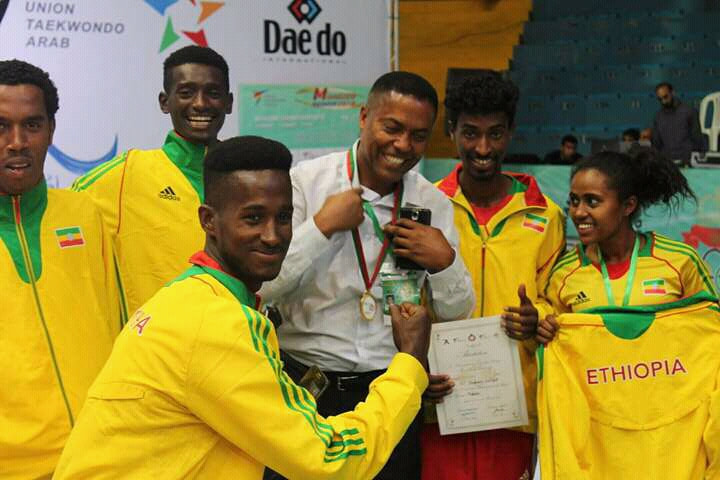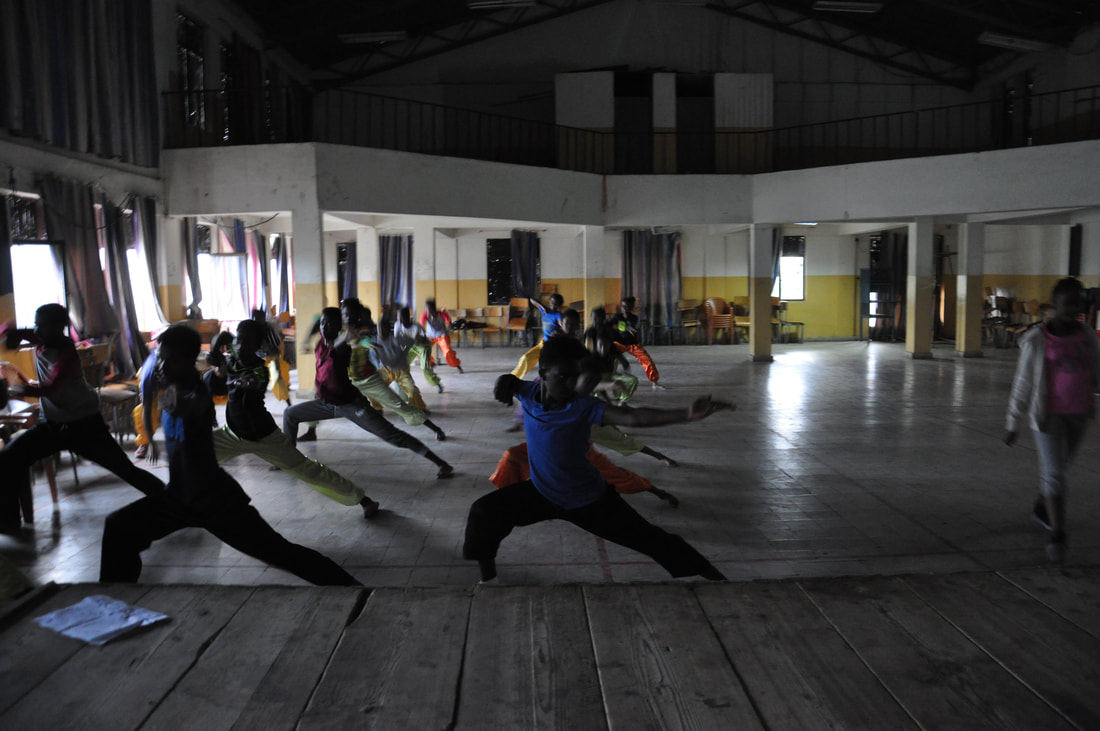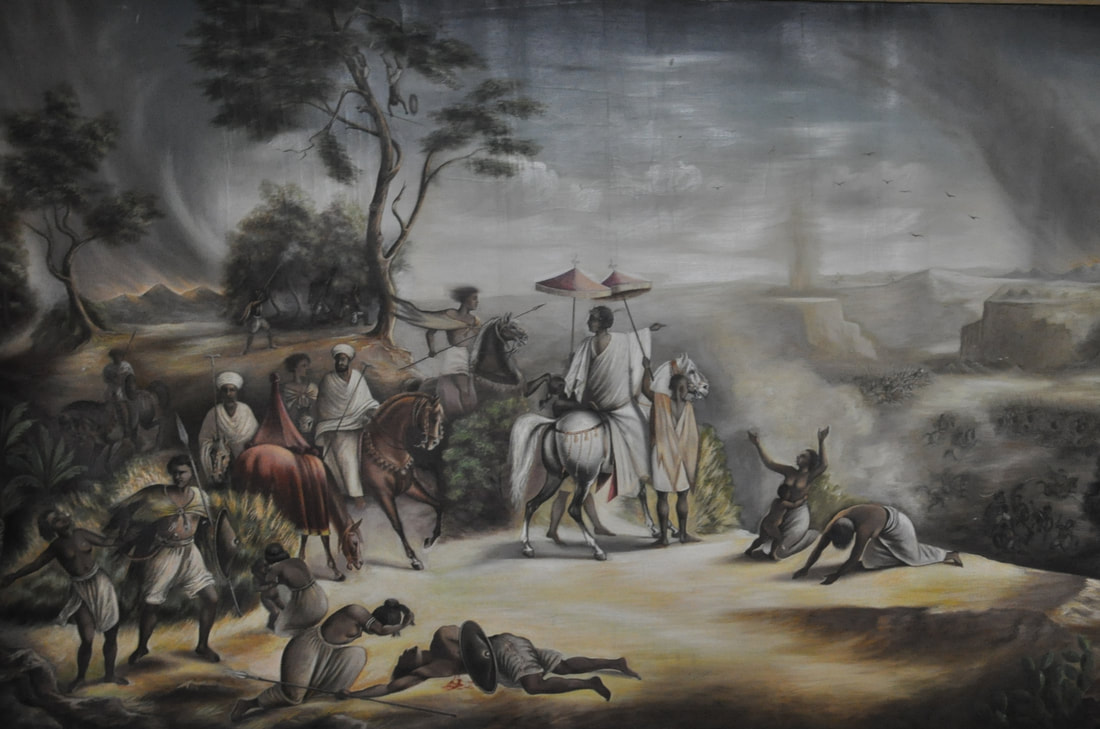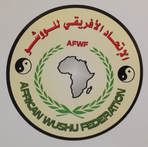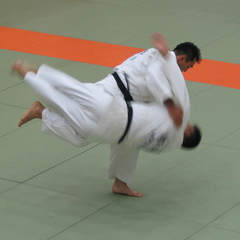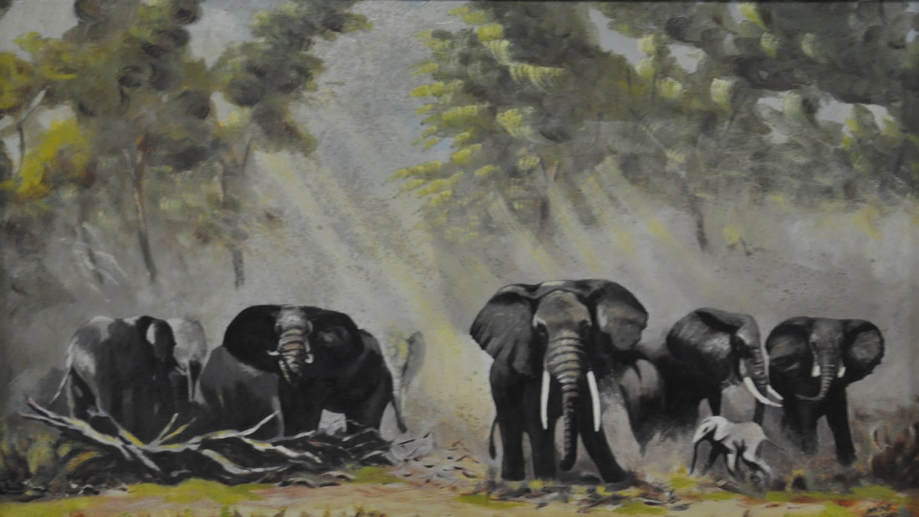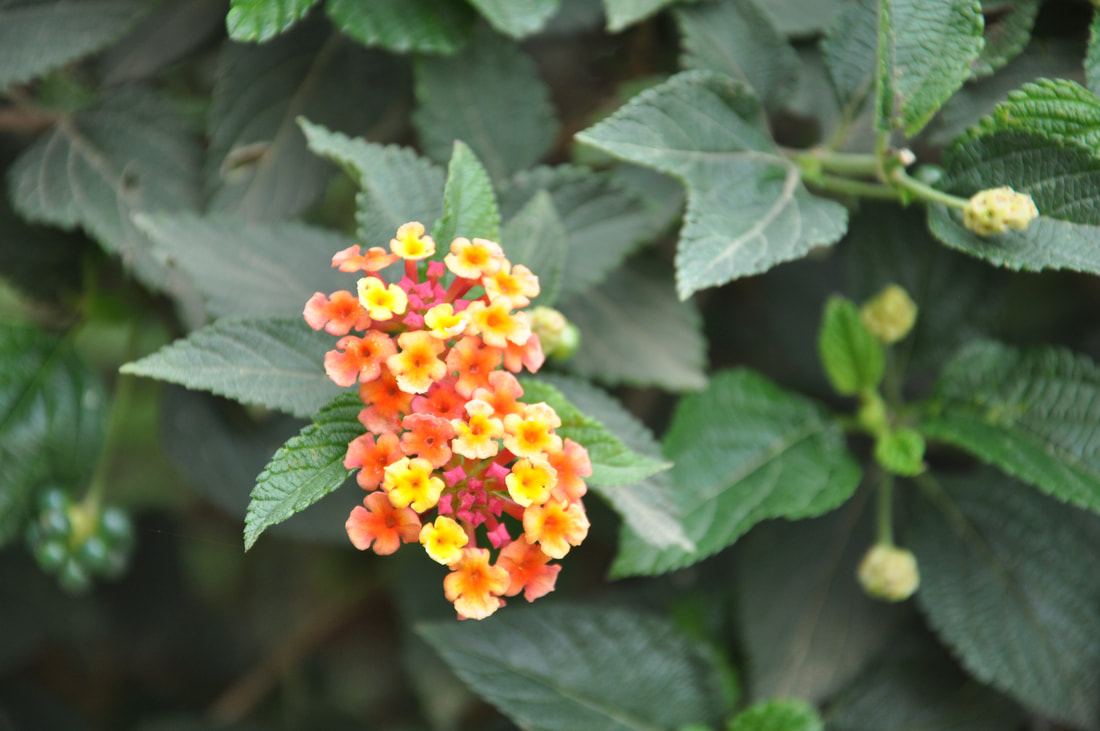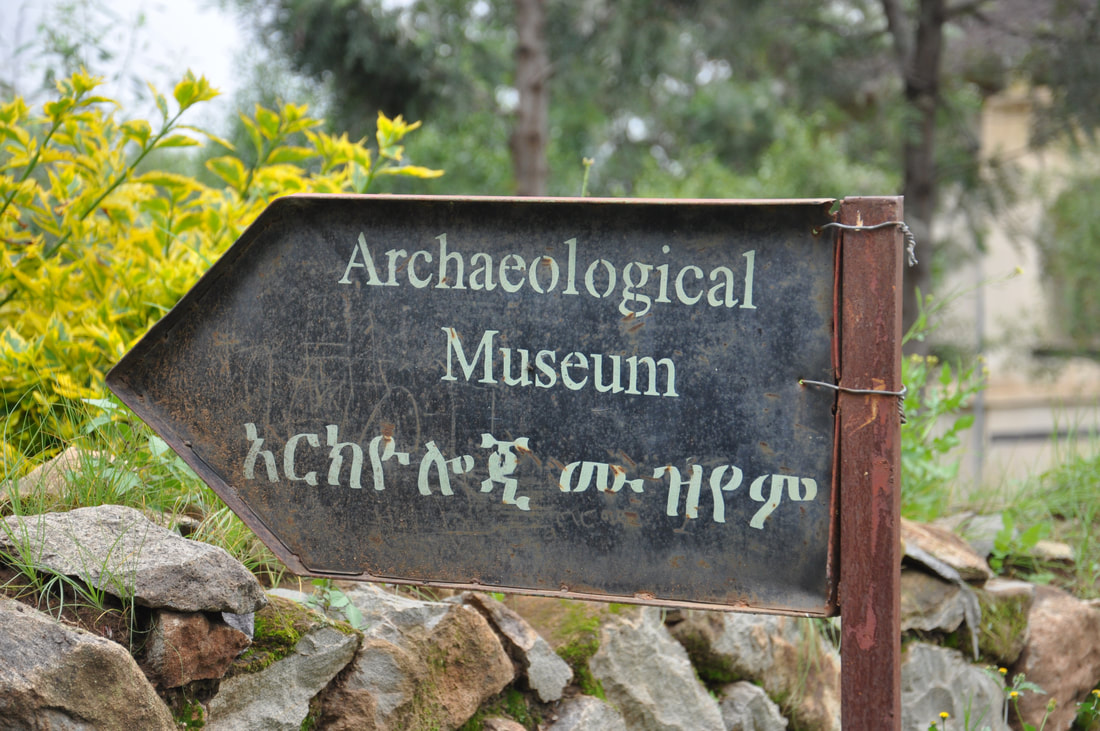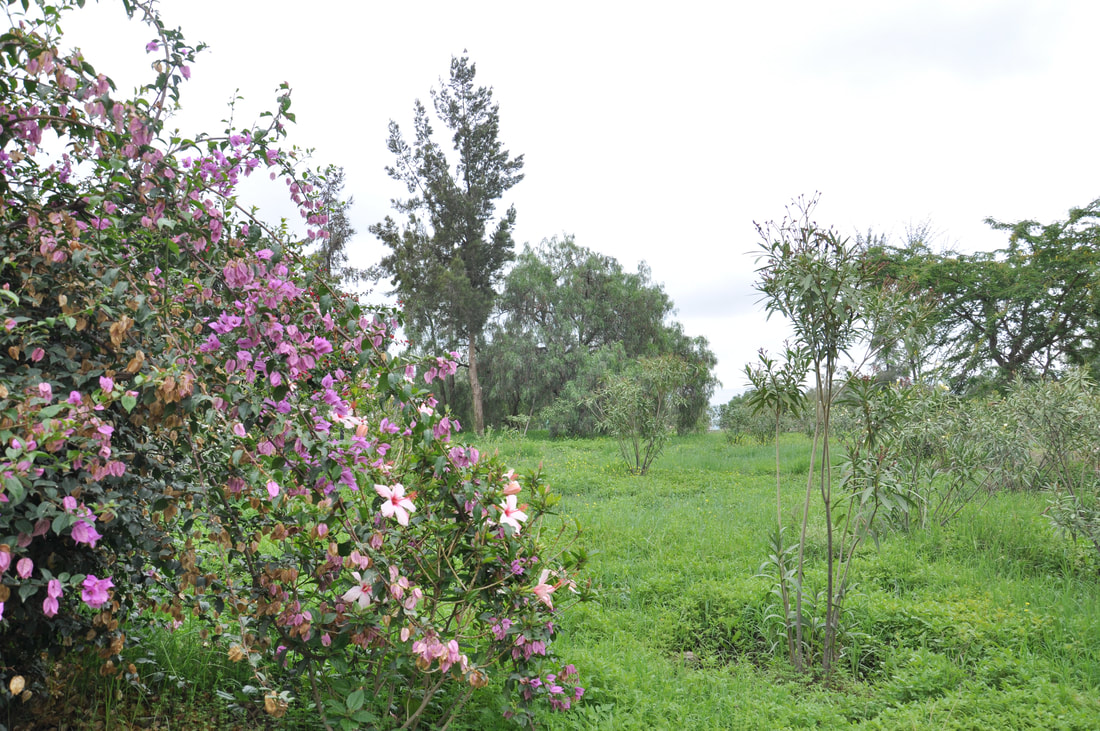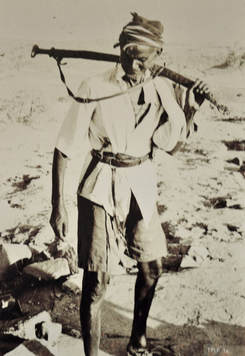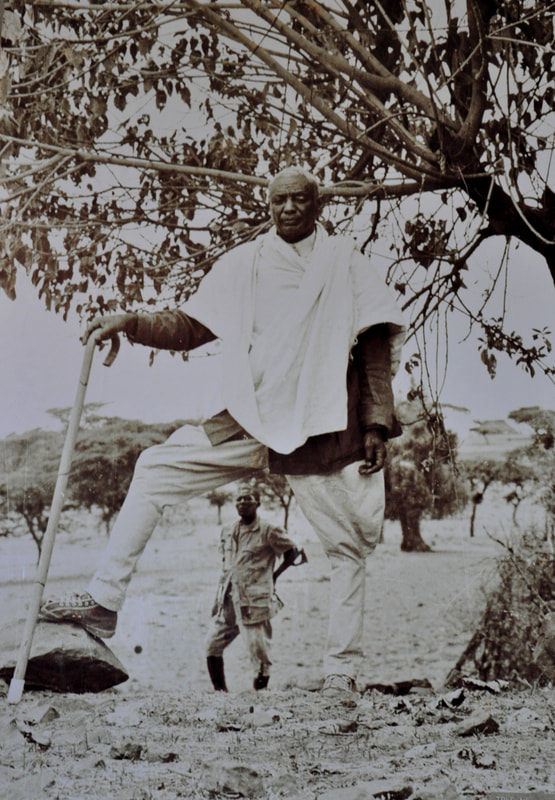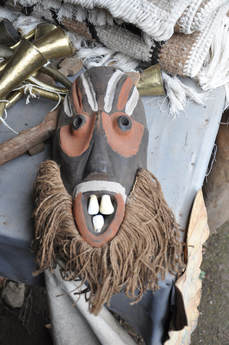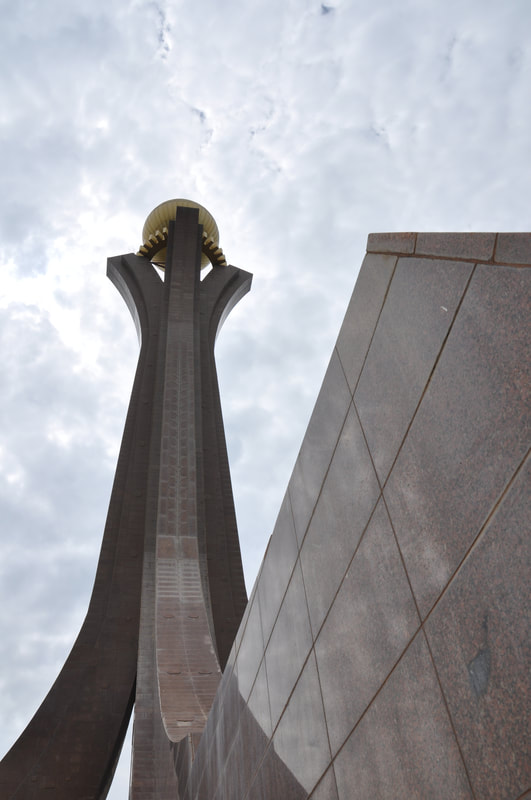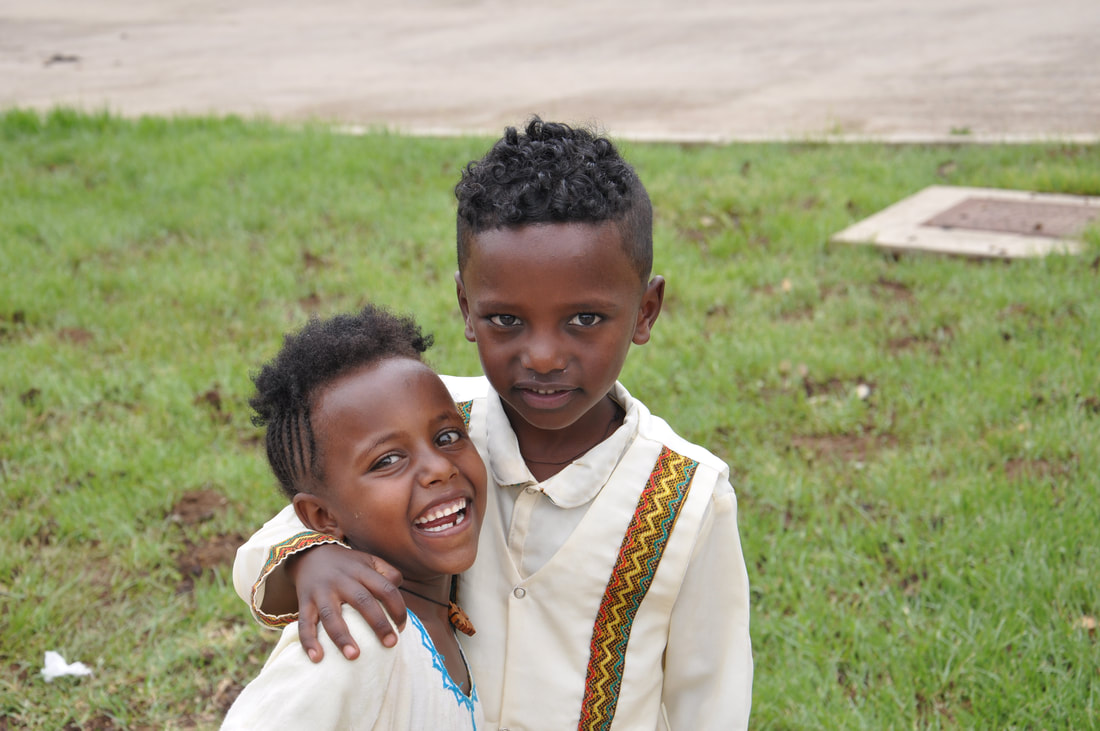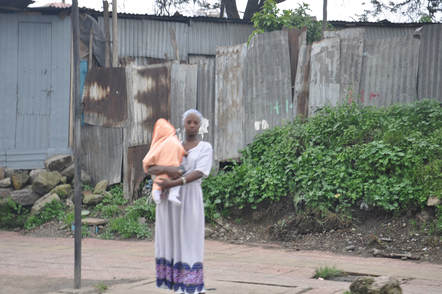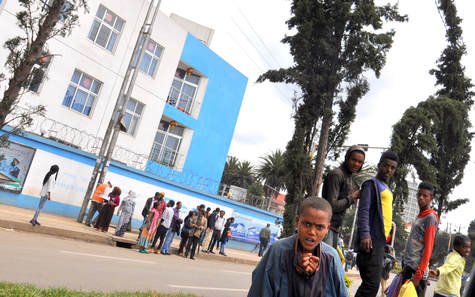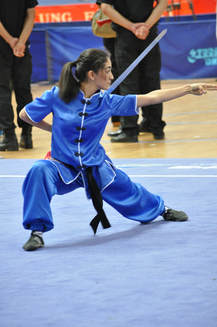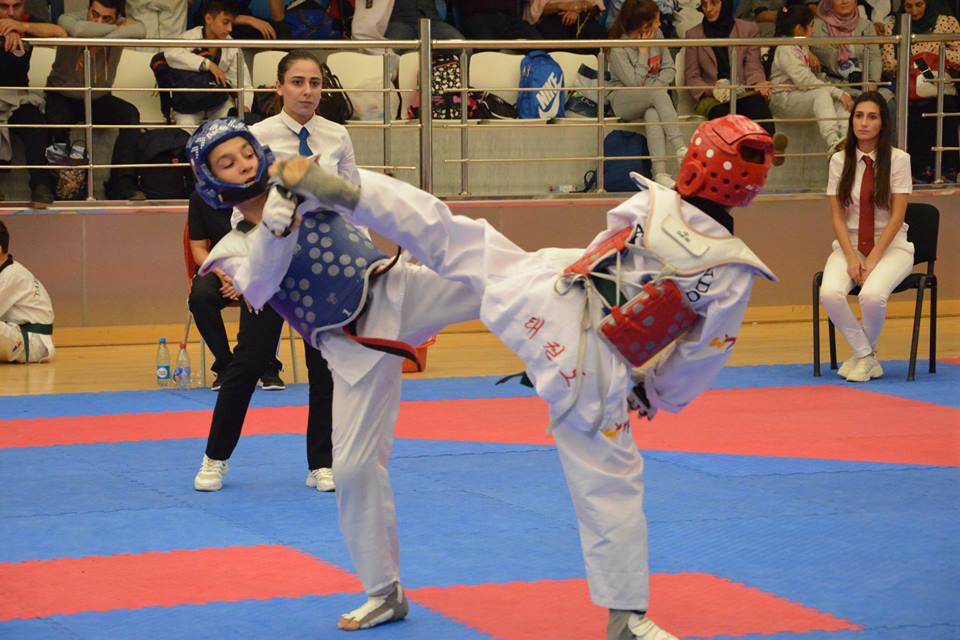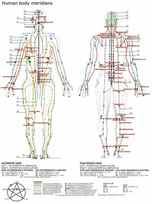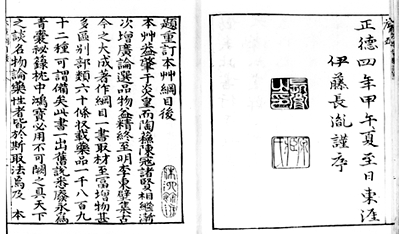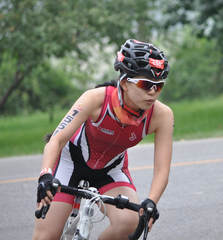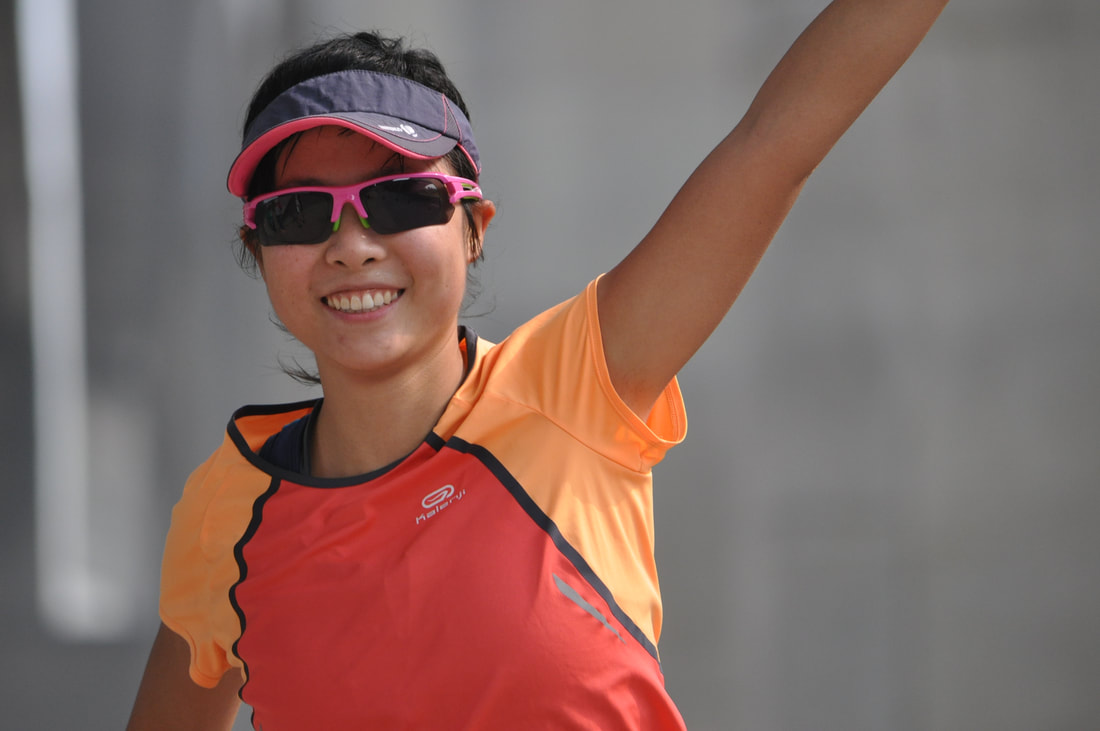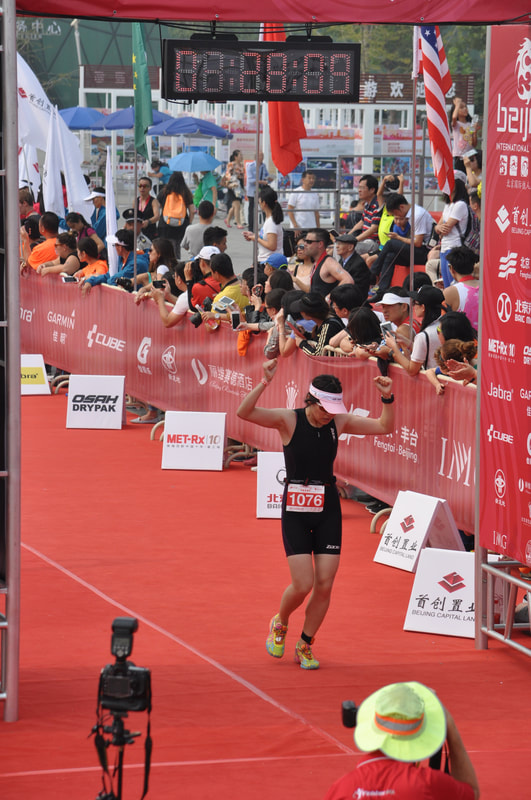Directory of Martial Art Training Resources
- In Afrika -
Inception: July, 2018
Updated: February, 2022
Updated: February, 2022
These Cool African Martial Arts are Often Overlooked
Do You Know Them? Century Martial Arts - 1/22/2019
... Continents around the globe have styles with their own popular followings, but one continent may not initially come to mind when thinking about popular martial art forms – Africa! While African martial arts such as dambe, laamb, Zulu stick fighting and other styles are quite popular within the continent, they are just now gaining recognition on a global scale. https://blog.centurymartialarts.com/martial-arts/cool-african-martial-arts-are-often Historical African Martial Arts Association (HAMAA)
The best resource I could find on the web for traditional African martial arts is "The Historical African Martial Arts Association" (HAMAA):
HAMAA is dedicated to the research, preservation, restoration, and propagation of the martial disciplines of Africa and its global diaspora community. This is achieved through academic research, experimental archeology, and building a global community of practitioners, historians, and enthusiasts. https://hamaassociation.wordpress.com/ MAMAA recently posted a very interesting article:
Armor of the Burji Dynasty Mamluk Elite Historical African Martial Arts - August 16, 2020 (Burji or Circassian Mamluk (Arabic: المماليك الشركس) dynasty ruled Egypt from 1382 until 1517) https://hamaassociation.wordpress.com/2020/08/16/armor-of-the-burji-dynasty-mamluk-elite/ The Mamluk Empire always fascinated me. I first heard about it from my father (a historian) when I was age 12 or so; how precarious was the power of each Sultan, and yet it was a renaissance period for the Islamic empire at that time wherein relative peace washed across the empire and great advances were made in the arts and sciences.
Also see: The Patronage of al-Nasir Muh̨ammad ibn Qalawun, 1310-1341 by Howayda Al-Harithythe American University of Beirut
PDF downloaded from: https://mamluk.uchicago.edu/MSR_IV_2000-alHarithy.pdf |
Living the arts today
Chinese martial arts gain popularity in Africa - Kung fu fighting. By Xinhua Published: Nov 24, 2021
Chinese martial arts, or kung fu, conjures up an image of the iconic movie star Bruce Lee, whose superb fighting skills were popularized throughout the world. Over the years, Africa has witnessed the making of several Bruce Lee-wannabes with wushu, the Chinese-language term for martial arts, having become popular across the continent... "Chinese martial arts teach an excellent way of life," said Dawit Terefe, an Ethiopian Chinese martial arts instructor, adding that the sport helps people become strong, healthy, stay in good shape and develop excellent concentration. / Terefe added that Chinese martial arts are lifetime physical exercises and are performed with balanced movements between the legs and hands, making them preferable to other exercises... https://www.globaltimes.cn/page/202111/1239824.shtm |
Some International Martial Art Federations in Ethiopia
World Taekwondo Africa
|
African Karate Federation
|
Africa Judo Union
|
https://allafrica.com/olympics/
International Martial Arts Associations/Federations in Africa
Exploring creative depths
|
A lasting journey
|
The Rhythm of Life
It has been my belief for the past several decades that the oldest languages of humans are encoded in dance. During my university years I participated in many styles of dance, including classes in African dance taught by Ferne Caulker-Bronson - who I believe was the founder of the internationally famous Ko-Thi Dance Company, and Clyde Morgan an Afro-Brazilian dance master who introduced me to Capoeira. Why dance? Oh many reasons, one being that the styles of most traditional martial arts are coded in dance, usually by other names. In Japan they are called Kata, in Korea, Poomse, in China, Taolu. I was also competing in many martial arts tournaments during those same years.
In Ferne's and Clyde's classes I learned that there are dances to celebrate the birth of a child, the coming of age, courtship, love, sexual competition, as well as marriage, and death, the planting of seeds in spring and the harvest of grains in autumn, preparation for war, the ultimate tragedy of slavery, as well as the joy of life - all in fact of the essential stages of life and nature, combined with history and coded in moving symbols, harmonized with drum. To view dance as nothing more than "booty-waggling" is profoundly superficial - an absurd denigration of the profound cycles of nature and life - the deepest and most profound styles of human communication. Life and the most meaningful parts of it, are a dance. Some Muslims think dance is prohibited in Islam. Though no expert on this, I suspect the intention of the dance is the deciding factor in its value. I watch the leaves of a tree dance in the wind, and think there is no sin but rather enjoy the splendor of God's gifts. |
One main reason I build internet sites is to encourage westerners to get out into the world and explore. I got the habit quite young and hope to encourage everyone to travel more - and not to the usual places! My preference is ancient roads, like the Silk Roads and more recently the Trans-Saharan Trade Routes.
A journey to East Africa is a journey home in many ways, as it was from the Horn of Africa that both prehuman (two million years ago) and the first truly human species (60,000 years ago) traveled west and north to populate the world. Thus, it is literally true to write that a trip to Ethiopia (and Sudan, Djibouti, Eritrea and Somalia) is a journey home - back to the Eden - the source from which - most scientists agree - modern humanity originated. And yet, there is no corner of Africa that should be overlooked, it's just my habit to explore trade routes because to me they are like the strings on a musical instrument, and the continents around them are like the reverberating music box. The ancient trading centers created pulsating drum beats which set the rhythm for great civilizations to arise. |
Some Background Photos - From Tigray Region in the far north of Ethiopia - Photos by G. Brundage
|
|
|
From Addis Ababa
Other background photos can be found on the East Africa page listed on the menu above.
Why Martial Arts?
|
Sports Diplomacy
|
|
There were a lot of scientific studies starting back in the 1970s that showed advanced martial arts participants scored lower on tests of aggression, hostility and anxiety than the general population. To be specific, white belts scored the same as regular people, intermediate level green belts scored a little higher, and black belt - advanced practitioners of the martial arts scored significantly lower on aggression, hostility and anxiety than randomly selected people.
These kinds of studies reinforce my belief that the vast majority of martial arts practitioners are pretty cool people, easy going, friendly and community minded. A number of other studies showed that martial arts training increases self-esteem, self confidence and self-discipline. These are all good things - within limits of course. |
Recently I've noticed more references in newspapers to Sports Diplomacy. I had to chuckle when I read that the only friend President Trump and Kim Jong-Un had in common is Dennis Rodman, given his outgoing, humorous, vastly colorful, flamboyant nature. I thought: Wow! What a terrific diplomat! And indeed, WWIII appears to have been delayed at least for a while. Bravo Dennis Rodman!
|
Sports Tourism - Little time to relax
How does one break the chains of poverty that shackle so much of the world?
Education is certainly one way, along with hard work, creativity and help from upstairs.
But, what if your school and teachers only cater to those who pay extra - and your parents can't? They just don't have the money? What then?
Sports have, for the past several thousand years been a way for regular people - the poor - to climb out of that poverty and achieve wealth and fame, and most importantly the human dignity we all deserve.
In addition to that, entire nations can be uplifted by their devotion to different sports, for example Brazil became uniquely famous for its outstanding football teams, and more recently Brazilian Jujitsu. China, Korea and Japan are certainly famed for their martial cultures. Kenyan and Ethiopian runners are world renowned.
The fact is most people love sports and sports can bridge seemingly insurmountable cultural and economic "gaps."
According to statistica.com:
Education is certainly one way, along with hard work, creativity and help from upstairs.
But, what if your school and teachers only cater to those who pay extra - and your parents can't? They just don't have the money? What then?
Sports have, for the past several thousand years been a way for regular people - the poor - to climb out of that poverty and achieve wealth and fame, and most importantly the human dignity we all deserve.
In addition to that, entire nations can be uplifted by their devotion to different sports, for example Brazil became uniquely famous for its outstanding football teams, and more recently Brazilian Jujitsu. China, Korea and Japan are certainly famed for their martial cultures. Kenyan and Ethiopian runners are world renowned.
The fact is most people love sports and sports can bridge seemingly insurmountable cultural and economic "gaps."
According to statistica.com:
|
The travel and tourism industry is one of the world’s largest industries with a global economic contribution (direct, indirect and induced) of over 7.6 trillion U.S. dollars in 2016. The direct economic impact of the industry, including accommodation, transportation, entertainment and attractions, was approximately 2.3 trillion U.S. dollars that year. A number of countries, such as France and the United States, are consistently popular tourism destinations, but other, less well-known countries are quickly emerging in order to reap the economic benefits of the industry.
https://www.statista.com/topics/962/global-tourism/ |
And that my friends should be some serious food for thought! I know countries that are used as drug trans-shipment routes where the various tribes war to attain dominance over that illicit trade, while simultaneously the histories of those countries are so noble and fine, so rich, colorful and amazing they could triple their money by closing down the drug routes and promoting - tourism!
|
And what about now with global tourism all but shut down by the COVID-19 epidemic?
Now is the perfect time to streamline our tourism industries and make preparations for better days. What better way to invest our time, than planning and working for better futures? This is not the time to relax. This is the time to get busy! |
SITE MAP
HOME
- A little history on the Trans-Saharan Trade Routes: https://fightingartsafrica.weebly.com/trans-saharan-trade-routes.html
- Just a few of the greatest Afrikan warriors: fightingartsafrica.weebly.com/greatest-afrikan-warriors.html
- Just a few of the greatest travelers of ancient Afrika: fightingartsafrica.weebly.com/greatest-african-travelers.html
East Afrika - Traditional and modern martial arts: https://fightingartsafrica.weebly.com/east-africa.html
West Afrika - Traditional and modern martial arts: https://fightingartsafrica.weebly.com/west-africa.html
Northern Afrika - Traditional and modern martial arts: https://fightingartsafrica.weebly.com/northern-africa.html
Central Afrika - Traditional and modern martial arts: https://fightingartsafrica.weebly.com/central-africa.html
Southern Africa - Traditional and modern martial arts: https://fightingartsafrica.weebly.com/southern-africa.html
Contact/About: https://fightingartsafrica.weebly.com/contact.html
Note 2: This site is quite new and far, far from complete. Visitors are invited to send photos and articles to the e-mail on the Contact page.
- A little history on the Trans-Saharan Trade Routes: https://fightingartsafrica.weebly.com/trans-saharan-trade-routes.html
- Just a few of the greatest Afrikan warriors: fightingartsafrica.weebly.com/greatest-afrikan-warriors.html
- Just a few of the greatest travelers of ancient Afrika: fightingartsafrica.weebly.com/greatest-african-travelers.html
East Afrika - Traditional and modern martial arts: https://fightingartsafrica.weebly.com/east-africa.html
West Afrika - Traditional and modern martial arts: https://fightingartsafrica.weebly.com/west-africa.html
Northern Afrika - Traditional and modern martial arts: https://fightingartsafrica.weebly.com/northern-africa.html
Central Afrika - Traditional and modern martial arts: https://fightingartsafrica.weebly.com/central-africa.html
Southern Africa - Traditional and modern martial arts: https://fightingartsafrica.weebly.com/southern-africa.html
Contact/About: https://fightingartsafrica.weebly.com/contact.html
Note 2: This site is quite new and far, far from complete. Visitors are invited to send photos and articles to the e-mail on the Contact page.
Why is "Afrika" sometimes spelled with a k instead of a c?
|
"According to the Afrikan-American poet and writer Haki Madhubuti in his From Plan to Planet (1973), there are basically four reasons to spell Afrika with a K. The following four reasons was published by Dr. Kwame Nantambu some years ago, an Associate Professor, Dept. of Pan-African Studies, Kent State University, U.S.A.
The four reasons are: 1. Most vernacular or traditional languages on the Continent spell Afrika with a K. K is germane to Afrika. 2. Europeans particularly the Portuguese and British, polluted Afrikan languages by substituting ‘C’ whenever they saw ‘K’ or heard the ‘K’ sound B as in Kongo and Congo, Akkra and Accra, Konakri and Conakry B by substituting Q whenever they saw KW. No European language outside of Dutch and German has the hard ‘C’ sound. Thus, we see the Dutch in ..Azania.. calling and spelling themselves Afrikaaners. We are not certain of the origin of the name Afrika, but we are sure the name spelled with ‘C’ came into use when Afrikans were dispersed over the world. There the ‘K’ symbolizes our coming back together again. 3. The ‘K’ symbolizes a kind of Lingua Afrikana, coming into use along with such words and phrases as Habari Gani, Osagyfo, Uhuru, ….Asante…., together constituting one political language, although coming from more than one Afrikan language. 4. As long as Afrikan languages are translated (written) into English, etc., the European alphabet will be used. This is the problem. The letter ‘K’ as with the letter ‘C’, is part of that alphabet, and at some point must be totally discontinued with the original name of Afrika used. The fact that Boers (peasants) in ..Azania.. also use the ‘K’, as in Afrikan to represent the hard ‘C’ sound demonstrates one of the confinements of the alphabet. Azania.. is the original name for ..South Afrika. "Hope this information explains why some people spell Africa with a K. InformAfrica would like to state that regardless of how Africans of today choose to spell our motherland, what is more important is our mindset. An Afrikan mindset overrules that of an European mindset – anywhere, anytime." http://www.informafrica.com/information/why-do-some-people-spell-africa-with-a-k-afrika-vs-africa/ |
Why do I use the European spelling for Afrika in the URL and on the navigation bar above?
It makes it easier for most people to find this site and learn something about Afrikan martial arts, history and culture. Readers are invited to start spelling Afrika in the way consistent with Afrikan history and culture in all of their writing and see if it's possible to educate the world. There really ought to be some universal human right to name one's self, and one's own continent. An unexpected benefit? Map makers and publishers could make lots and lots of money reprinting everything using the name Afrika with the corrected spelling.
It makes it easier for most people to find this site and learn something about Afrikan martial arts, history and culture. Readers are invited to start spelling Afrika in the way consistent with Afrikan history and culture in all of their writing and see if it's possible to educate the world. There really ought to be some universal human right to name one's self, and one's own continent. An unexpected benefit? Map makers and publishers could make lots and lots of money reprinting everything using the name Afrika with the corrected spelling.
Visit some of my other sites...
|
Directory of Martial Art Training Schools in Asia
亚洲 - 武术 名单 & Brief Martial Arts News (武术新闻) and Events in Asia |
Chinese Traditional Medicine 中药
|
Triathlon China
https://triathlonchina.weebly.com
Proudly powered by Weebly
